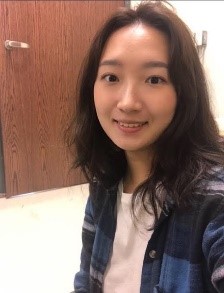Click here for a printer-friendly PDF of this newsletter.
Novel food technologies: Are they routes – or barriers – to healthier diets?
Swiss researchers Michael Siegrist and Christina Hartmann addressed that question in their 2020 Nature Food article, “Consumer acceptance of novel food technologies.” They used a narrative review to explore factors that may explain consumers’ acceptance of gene technology, nanotechnology, cultured meat, and food irradiation. Outcomes centered on understanding and taking seriously what consumers think.
“…disruptive food technologies will be needed to progress towards a more resilient food system,” they concluded. Taking into account the factors influencing consumers’ perceptions of novel food technologies during the early stage of development and introduction will hopefully result in a higher acceptance of such technologies.”
You can read the article here.
Environmental knowledge brokers: much more than neutral intermediaries
A team of researchers in New Zealand focused on this broker role in their recent analysis of collaborative decision making about water use and quality in the south island region of Canterbury. Tracking perspectives among community-based groups, they identified flaws in the common view of brokers as helping link knowledge producers and users to objectively translate science into policy-useable knowledge.
“Knowledge brokers are often portrayed as neutral intermediaries that act as a necessary conduit between the spheres of science and policy,” authors observed. In practice, though, these brokers found their role complex at multiple levels and often conflictual, messy, and value laden. Authors identified kinds of expertise this influential, active, and “profoundly precarious” role requires.
You can read their 2020 article by open access in Palgrave Communications.
Code of ethics for food journalists
We have added to the ACDC collection a code of ethics developed and used by the Association of Food Journalists. It introduces 5 key principles, 3 questions to consider when putting them to practice, and 10 additional guidelines for food journalists.
You can read the code here.
Views Canadians hold about an “obesity crisis”
Recently we added a 2016 research report on results of a national public opinion poll from the Angus Reid Institute. Findings indicated that:
- Most Canadians (58%) reported someone in their household who was overweight or obese, either themselves or another person.
- The vast majority (81%) of those who were themselves overweight or obese said it’s something that worried them.
- However, most Canadians didn’t rank the matter of obesity as a crisis
- More than one-half (54%) said they viewed it as an issue of personal freedom.
- “Though Canadians are wary of government telling them what to eat,” …. they expressed “high levels of support for many of the recommendations the Senate committee put forward.”
You can read the report here.
Advice to reporters about need to cover local community banks
Shrinking numbers of small community banks and increasing need for credit in agriculture prompted an article on the website of the National Center for Business Journalism. Author Yu Zhang highlighted some recent changes and trends, then offered several story approaches for journalists. The 2017 article remains timely.
You can read it here.
Welcoming two new ACDC associates
We are delighted to welcome two new graduate assistants as this academic year begins. Both are candidates for graduate degrees in library and information science here at the University of Illinois.


Eunchae Hong earned a Bachelor of Arts degree in history from the University of Illinois and gained archiving experience in the Illinois Fire Service Institute. She also has circulation experience from the Illinois Law Library and skills in marketing and outreach.
Kevin Wiggins earned a Bachelor of Arts degree in history from the University of Northern Iowa (UNI). He brings work experience from the Iowa Attorney General’s Office, UNI Rod Library, UNI Museum, and Living History Farms, Urbandale, Iowa.
Communicator events approaching
Uncertainties of the COVID-19 health issue continue to prompt flexible event planning. Here are plans of which we are aware, with website addresses you can use to track updates.
September 14 through October 20, 2020
“British Library Food Season 2020.” Online program featuring the culture, history, sustainability, literature and future of food. Many of the programs during this period are free. Source: Guild of Food Writers, based in the United Kingdom.
Information: https://bl.uk/events/food-season
November 6-17, 2020 (virtual conference rescheduled from on-site)
“Virtual Summit.” Ag Media Summit 2020 is a gathering of agricultural media and communications professionals. It is hosted by AAEA – The Ag Communicators Network and Livestock Publications Council (LPC).
Information: https://agmediasummit.com/
November 18-20, 2020 (virtual convention rescheduled from on-site)
“A trusted friend to agriculture.” Annual convention of the National Association of Farm Broadcasting (NAFB).
Information: https://nafb.com/events/nafb-convention
April 12-15, 2021
“Mediterranean Agriculture, Food and Environment.” Annual conference of the Association for International Agricultural and Extension Education (AIAEE) in Thessaloniki, Greece.
Information: https://aiaee2021.wordpress.com/
From climate to pandemic?
A year ago, the term “climate emergency” was peaking to become Oxford Dictionaries “Word of the Year” for 2019. Global use of that term surpassed all other types of emergency to become the most written about emergency by a huge margin. We close this issue of ACDC News wondering if the coronavirus pandemic may be emerging as “Word of the Year” for 2020. Or what candidates might you expect?
Please pass along your “Word of the Year” candidate(s) here.
Best regards and wishes during this challenging time
ACDC is a resource for you, so please feel free to invite our help as you search for information. Don’t forget to follow us on Twitter @ACDCUIUC. And please suggest (or send) agricultural communications documents we might add to this unique and valuable international collection. We welcome them in hard copy (sent to Ag Comm Documentation Center, Room 510, 1101 S. Goodwin Avenue, Urbana, IL 61801) – or in electronic format sent to acdc@library.illinois.edu